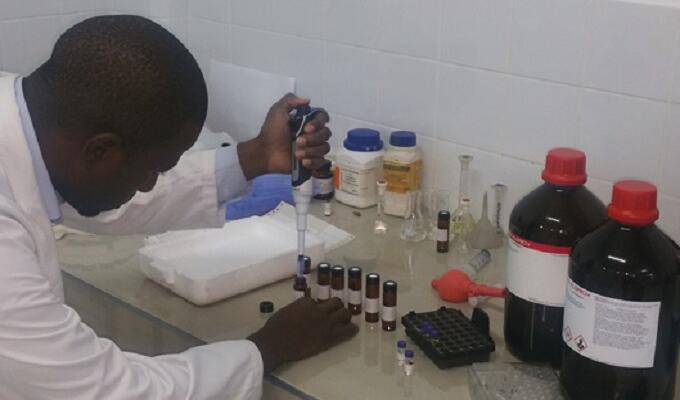

Bolstering Zimbabwe’s infrastructure for standards compliance and certification (en)
The ability to meet standards and technical regulations in value chains and target markets has become a critical determinant of whether businesses can succeed in international trade.
However, for the vast majority of companies, especially small and medium-sized enterprises (SMEs), compliance and conformity certification cannot happen in isolation. A well-functioning ecosystem of institutions and technical infrastructure is vital for companies to seize the international market opportunities presented by standards compliance. This ecosystem ranges from national standards bodies, which develop and promote standards; to testing and inspection laboratories that verify whether products are indeed compliant; certification bodies; and an array of technical regulatory agencies. The work of these bodies is critical for supporting enterprises to apply relevant standards, meet export market regulations and prove to trading partners that their products comply.
In many developing countries, however, quality-related technical institutions are often limited by insufficient resources, know-how and equipment. Testing facilities are inadequate and conformity-assessment bodies are frequently unrecognized in international markets. This imposes high costs and burdensome, time-consuming procedures on businesses that wish to obtain certification. This in turn hampers trade and limits its potential contribution to growth and socioeconomic development.
Zimbabwe is one such country. It faces multiple obstacles to realizing its goal of expanding international trade and making optimal use of opportunities afforded by regional integration initiatives and the interim Economic Partnership Agreement with the European Union. One of these is the limited capacity of the country’s quality-related support institutions. Without inspection, testing and certification services that are accepted in export markets, whether within the region or further afield, exporters are unable to demonstrate compliance with relevant standards and technical regulations, with the result that for them marketopening agreements exist largely on paper.
Another hindrance for would-be exporters is that Zimbabwe’s regulatory authorities often lack the technical capacity to develop and implement technical regulations and standards in line with the World Trade Organization (WTO) Agreements on Sanitary and Phytosanitary Measures (SPS) and Technical Barriers to Trade (TBT). The resulting misalignment with regional and international standards also curbs Zimbabwean companies’ ability to access foreign markets.
The responseITC has worked to enhance the capacities of Zimbabwe’s quality infrastructure, from its national standards body, the Standards Association of Zimbabwe (SAZ), to the laboratories that test and certify its export products, particularly agricultural goods.
Trainers within Zimbabwean government departments for research, agriculture, health and biotechnology were equipped to educate SMEs about standards and complying with European Union import requirements, in particular European Commission directives setting out maximum safe limits for residual levels of pesticide and veterinary antibiotics in food products. In addition, officials from the relevant ministries received training on WTO rules for health and safety standards and technical regulations to equip them to better help SMEs access foreign markets.
ITC worked with the SAZ to improve its certification schemes for key international management standards. These schemes certify entire companies as having world-class management processes, whether for their quality management system (ISO 9001), environmental management practice (ISO 14001), or workplace health and safety (OHSAS 18001). Having well-regarded management system certificates serves as a credible signal that companies can deliver high-quality goods and services and improves their standing in the eyes of potential buyers at home and abroad.
In addition, ITC trained testing and certification laboratories to meet an international standard that recognizes their competence to conduct tests and measurements for the purposes of accreditation (ISO 17025). When laboratories have this accreditation, it increases the acceptance of certificates they issue for Zimbabwean products in export markets. ITC also supported the acquisition of new testing equipment by the SAZ’s main testing facility.
The resultsSince it started working with ITC, the SAZ has been able to ramp up the pace of certification. In 2016 it certified 125 companies to ISO 9001 quality management standards, 21 to ISO 14001 environmental management standards and 13 to OHSAS 18001 occupational health and safety management standards. Ten firms were certified to HACCP/ ISO 22000, an international standard that builds on Hazard Analysis and Critical Control Points (HACCP), a widely used process for safe food production that is a prerequisite for entering several major markets. The SAZ’s laboratories have doubled their sample testing capacity, thus sharply increasing the number of products and companies that can receive certification every month.
In addition, SAZ-affiliated laboratories have expanded the range of tests they can conduct, allowing them to meet client needs they were previously unequipped to serve. Their main laboratory now houses analytical instruments for gas chromatography mass spectrometry and high performance liquid chromatography. This makes it possible to separate and identify the different components of a sample and thus to detect dangerous fungal toxins and measure the detailed nutritional content and residual antibiotic or pesticide levels in potential food exports.
SAZ laboratories are already recognized by the Southern African Development Community’s region-wide accreditation system as competent to carry out chemical tests on water in accordance with ISO 17025. This is poised to expand to include mycotoxins, poisonous chemical products produced by fungi that can be present in food crops. The SAZ’s increased testing capacity will help Zimbabwean food products become more competitive within and beyond the country’s borders.
Finally, the project helped the SAZ achieve operational efficiencies through the use of software to track information related to standards.
The futureITC will build on these results in partnership with institutions like the SAZ and the Ministry of Commerce and Industry with the goal of strengthening Zimbabwe’s quality infrastructure and in turn expanding and diversifying the country’s export base.
An initial priority will be to reinforce the capacities of the inspection agencies and four testing laboratories related to plant and veterinary health; biotechnology; and food and drug safety.



